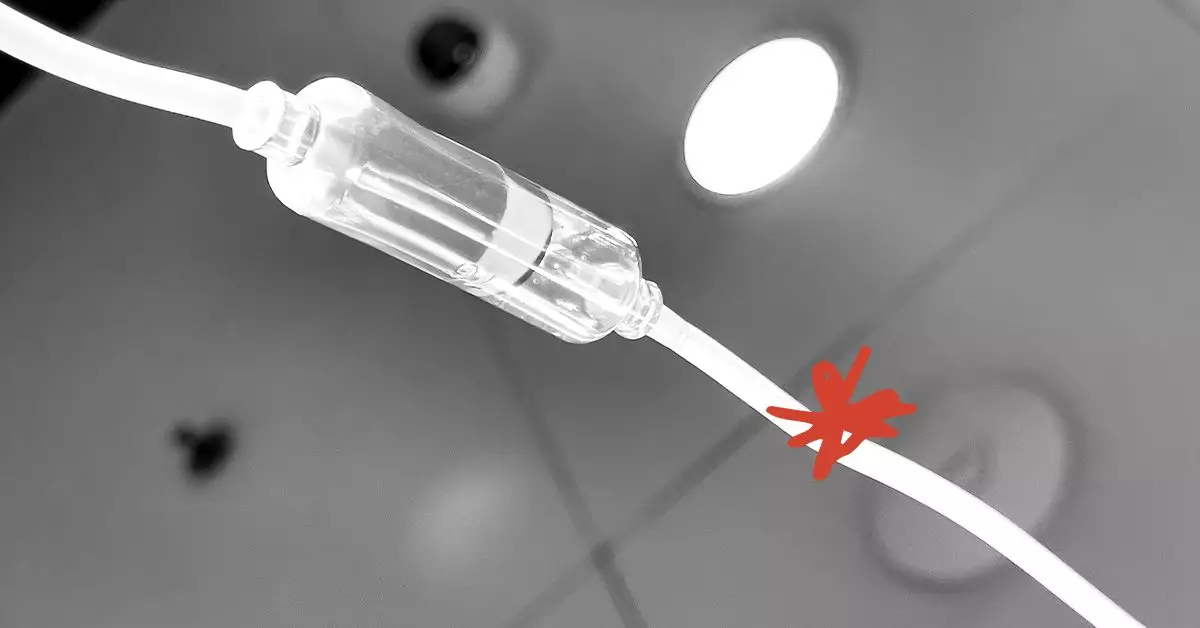Chemotherapy plays a critical role in treating various forms of cancer; however, it often comes with a range of side effects that can compromise the patient’s overall health and wellbeing. One of the more common, yet frequently overlooked, complications is the rise in urinary tract infections (UTIs). A significant proportion of chemotherapy patients encounter these infections, which stems largely from the treatment’s impact on the immune system and bodily barriers.
Chemotherapy is designed to eliminate cancer cells, but its relentless assault does not discriminate. Non-cancerous cells, including those crucial for maintaining a strong immune system, are also destroyed. This collateral damage can leave patients susceptible to infections, including UTIs. In a notable study conducted in 2022, an overwhelming 82.6% of UTIs occurred during chemotherapy cycles, indicating a strong link between the treatment and the incidence of these infections.
Chemotherapy impacts the body in a multitude of ways that can lead to UTIs. One significant side effect is neutropenia—a critical reduction in neutrophils, a type of white blood cell essential for combating infections. When neutrophil levels drop, the body’s ability to fend off pathogens diminishes, fostering an environment conducive to infections. Moreover, chemotherapy can compromise the skin and mucous membranes, which serve as frontline barriers defending against harmful microorganisms. This damage can enable bacteria to breach these defenses and infect the urinary tract.
Aside from UTIs, various bladder complications may arise as side effects of chemotherapy. Lower urinary tract symptoms (LUTS) are particularly common, with research indicating that over 70% of chemotherapy recipients may experience these symptoms. Conditions such as frequent urination, urgency, and urinary incontinence can significantly impact daily life. The underlying mechanisms include inflammation and irritation in the urinary tract, both triggered by chemotherapy drugs.
Chemotherapy can also lead to cystitis, an inflammation of the bladder typically caused by infection. Symptoms often overlap with those of UTIs, including painful urination and frequent urges to use the bathroom. Another lesser-known complication is vaginal dryness, which can occur due to chemotherapy’s effect on the mucous membranes. This dryness can increase vulnerability to infections, including UTIs and sexually transmitted infections.
Patients undergoing chemotherapy must be vigilant in recognizing symptoms indicative of urinary complications. Besides the obvious signs of a UTI, such as burning during urination and an urgent need to urinate, patients may experience fatigue and cloudy or dark urine. Awareness of symptoms is crucial not only for personal comfort but also for preventing further complications like sepsis—an extreme bacterial infection that can arise from untreated UTIs.
Addressing urinary complications often requires a multifaceted approach. Treatment can range from simple lifestyle modifications to more invasive options like surgery, depending on the severity and nature of the symptoms. For instance, bladder training techniques, pelvic floor exercises, and medications that target overactive bladder muscles are commonly deployed.
While treating UTIs is essential, prevention should be the priority. Chemotherapy patients can adopt several strategies to minimize their risk of developing urinary issues. These include maintaining good hydration, avoiding irritants like alcohol and caffeine, and practicing good hygiene. It’s also advisable to urinate after sex, which can help expel any bacteria that may have been introduced into the urinary tract.
Tracking urination habits can provide critical insights into one’s bladder health, enabling patients to discuss any concerning patterns with their healthcare provider. Furthermore, wearing breathable, cotton underwear and avoiding tight-fitting clothing can promote a healthy environment that discourages bacterial growth.
Any patient experiencing symptoms of a UTI or other bladder-related issues during chemotherapy should not hesitate to contact their healthcare team. It’s paramount to convey all symptoms to facilitate a prompt response, especially considering the risk of severe complications like sepsis, which can manifest as fever, chills, confusion, and significant changes in urination patterns.
While chemotherapy remains a potent weapon in the fight against cancer, it carries the risk of urinary tract infections and other bladder complications. Through increased awareness, proactive prevention, and timely medical consultation, patients can better navigate these challenges and maintain their quality of life during treatment.


Leave a Reply